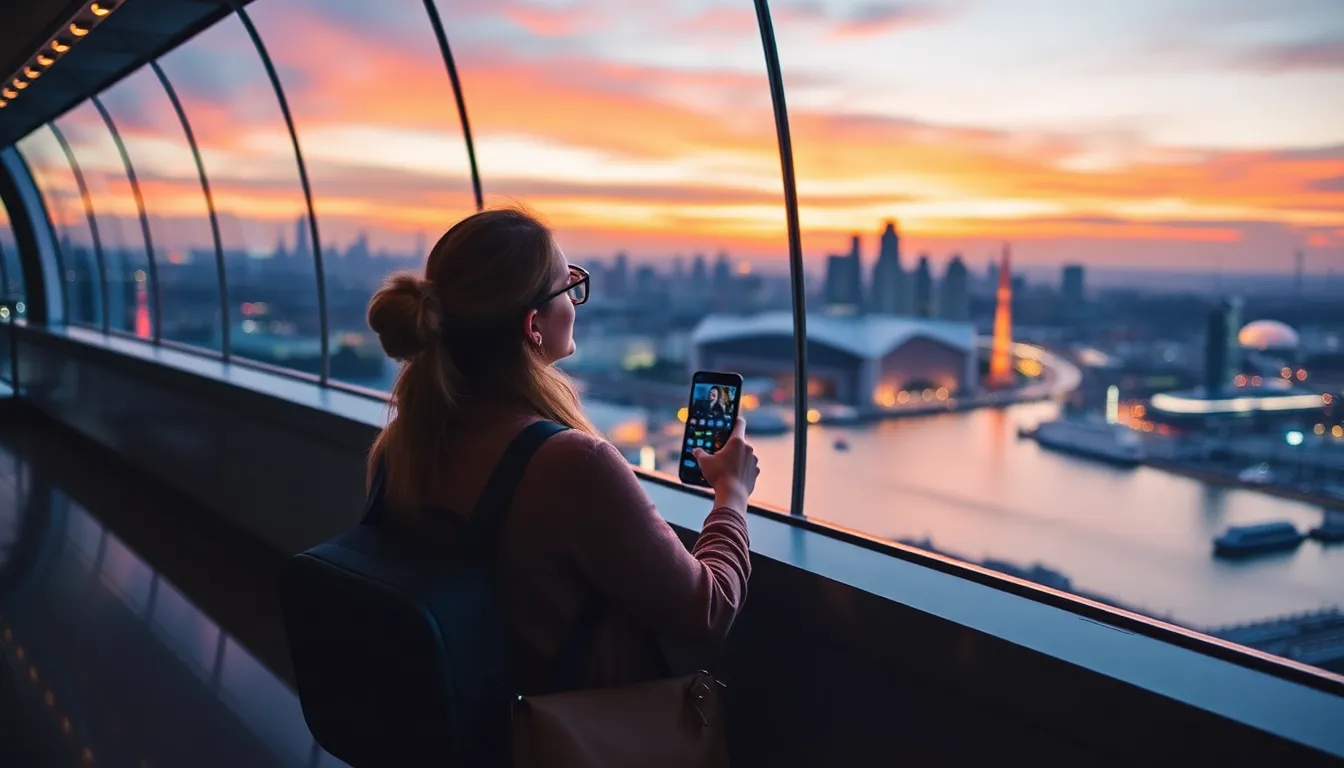In an era where technology permeates every aspect of our daily lives, its role in enhancing travel experiences cannot be overstated. From planning trips to navigating new destinations, technology has become an essential companion for modern travelers. This article delves into the multifaceted impact of technology on travel, exploring how it transforms the way we plan, experience, and enjoy our journeys.
The evolution of technology in travel
Technology has undergone a remarkable transformation over the years, influencing how we travel and interact with the world around us. In the past, planning a trip involved meticulously sifting through guidebooks and making phone calls to book accommodations. Today, the digital landscape offers a plethora of tools and resources at our fingertips, streamlining the entire travel process.
Travelers can now utilize various apps and websites to:
- Compare flight prices in real-time.
- Book accommodations with just a few clicks.
- Access reviews and ratings for attractions and restaurants.
- Plan itineraries that can be easily modified on the go.
This evolution reflects not only advancements in technology but also a shift in consumer behavior, where convenience and accessibility are paramount.
How technology has transformed trip planning
The way we plan our trips has changed dramatically, thanks to technology. Gone are the days of relying solely on travel agents; now, travelers have access to an array of digital tools that empower them to take control of their itineraries.
Key advancements include:
- Online booking platforms: Websites like Booking.com and Airbnb allow users to compare prices, read reviews, and secure accommodations from the comfort of their homes.
- Travel apps: Mobile applications such as TripIt and Google Trips help organize travel plans, consolidating flight, hotel, and activity information in one place.
- Social media influence: Platforms like Instagram and Pinterest provide inspiration and recommendations, shaping travel trends and preferences.
This democratization of travel information has enabled more people to explore the world, fostering a culture of personalized travel experiences.
The role of technology in enhancing travel experiences
Once on the road, technology continues to play a vital role in enriching travel experiences. From navigation to communication, the innovations available today are designed to help travelers navigate unfamiliar environments with ease.
Some notable aspects include:
- Navigation apps: Google Maps and Waze offer real-time directions and traffic updates, ensuring travelers reach their destinations efficiently.
- Language translation: Apps like Google Translate break down language barriers, allowing for smoother interactions with locals.
- Local discovery: GPS-enabled apps can suggest nearby attractions, dining options, and activities, enhancing the spontaneous aspects of travel.
These tools not only simplify the travel process but also encourage deeper engagement with local cultures.
Security and connectivity in the digital age
While technology enhances many aspects of travel, it also introduces new challenges, particularly regarding safety and security. Travelers must be mindful of their digital presence and the potential risks associated with using technology abroad.
Considerations include:
- Data security: Public Wi-Fi networks can be vulnerable, making it crucial to use VPNs to protect sensitive information.
- Device safety: Keeping personal electronics secure is essential, especially when traveling in crowded areas.
- Travel insurance: Many travel insurance policies now include coverage for electronic devices, protecting against loss or theft.
Understanding these risks allows travelers to enjoy their adventures while safeguarding their personal information and belongings.
Emerging technologies shaping the future of travel
The travel industry is constantly evolving, and emerging technologies promise to further revolutionize the way we explore the world. Innovations such as artificial intelligence, augmented reality, and blockchain are already making waves.
Examples of these technologies include:
- AI chatbots: Many travel companies now use AI-driven chatbots to provide instant customer support and assistance.
- AR experiences: Augmented reality apps can enhance cultural experiences by providing historical context or interactive tours.
- Blockchain for security: This technology offers enhanced security for transactions, making it safer to book travel accommodations and services online.
As these technologies continue to develop, they hold the potential to create even more seamless and immersive travel experiences.
Benefits of technology for travelers
The advantages of leveraging technology while traveling are numerous and can significantly enhance the overall experience. Among the most notable benefits are:
- Increased convenience: Booking flights, accommodations, and activities can all be done in a matter of minutes.
- Real-time information: Access to up-to-the-minute information about flights, weather, and local events helps travelers stay informed.
- Cost savings: Online platforms often provide competitive pricing and exclusive deals, allowing travelers to save money.
- Enhanced communication: Staying connected with family and friends back home is easier than ever with messaging apps and social media.
These benefits empower travelers to maximize their enjoyment and minimize stress during their journeys.
Conclusion: Embracing technology for better travel
As technology continues to evolve, its impact on travel will only grow stronger. By embracing these advancements, travelers can enhance their experiences, from the planning stages to the moment they return home. The future of travel is not just about reaching new destinations; it’s about leveraging technology to create memories that last a lifetime.







